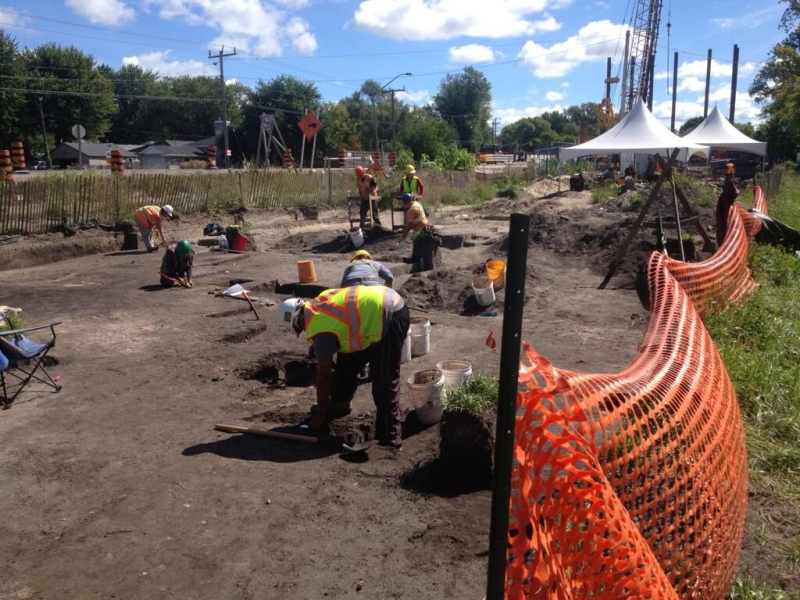MONTREAL -- Emergency workers urged another 1,500 residents of a flood-ravaged suburb west of Montreal to leave their homes Sunday, one day after floodwaters broke through a natural dike northwest of the city and forced some 5,000 others to flee with only the clothes on their backs.
Residents of Ste-Marthe-sur-le-Lac, Que., left behind medications, wallets and pets as the Lake of Two Mountains breached the dike at about 7 p.m. Saturday. Soldiers, firefighters and police, sirens blaring, patrolled the streets and pounded on doors to get homeowners to leave.
Sunday's evacuation was a preventative measure, said Quebec Public Security Minister Genevieve Guilbault. Two shelters have been set up for evacuees in neighbouring Deux-Montagnes and some 2.500 homes were impacted.
"Nobody has been injured, no problems," Guilbault said in Quebec City. "Everyone is safe this morning. That is very important."
Guilbault said the coming hours would be critical in the province as floodwaters continue to rise, but she took some comfort in the fact there is no rain in the forecast until Wednesday.
That "will bring some respite on the ground and will at last give our teams and all the evacuees a chance to catch their breath a bit."
The dike breach in Ste-Marthe-sur-le-Lac brought to 5,584 the total number of flooded homes in the province, with some 7,786 forced to evacuate.
The water rose so quickly overnight that it left some cars on the street totally submerged, rising to the level of ground-floor windows in some homes, said Quebec provincial police Sgt. Daniel Thibaudeau.
Rapid action was needed to save lives in some cases, as was an amphibious vehicle for some rescues, he added, without elaborating.
The Galipeault Bridge, a major western entry point onto the Island of Montreal, will remain closed Monday because of high water levels, said Guilbault.
Flooding also caused the closure of the Chaudiere Bridge between Ottawa to Gatineau, Que., which will remain off-limits to pedestrians and vehicles. Traffic was being redirected to the nearby Portage Bridge.
Transport Minister Marc Garneau has issued a ban on marine navigation in several areas, including a stretch of the Ottawa River between Ottawa-Gatineau and the Carillon generating station, as well as on Lake of Two Mountains, Riviere-des-Mille-Iles and Riviere-des-Prairies.
In central Ontario's cottage country, water levels had increased slightly due to rain on Friday, but officials remained hopeful some late-season snow would act as a sponge and help slow the flow of water into lakes, rivers and streams.
The best news came from southern New Brunswick, where the forecast is for floodwaters to slowly recede in most areas over the next five days.
Japanese Prime Minister Shinzo Abe, who was Ottawa on Sunday for an official visit with Prime Minister Justin Trudeau, took time to address those affected by the flooding.
"I'd like to express my sympathy for the tremendous damage that the people are suffering from due to the most recent flood," Abe said.
"On behalf of the entire people of Japan I'd like to convey my sincere feelings to you."






































